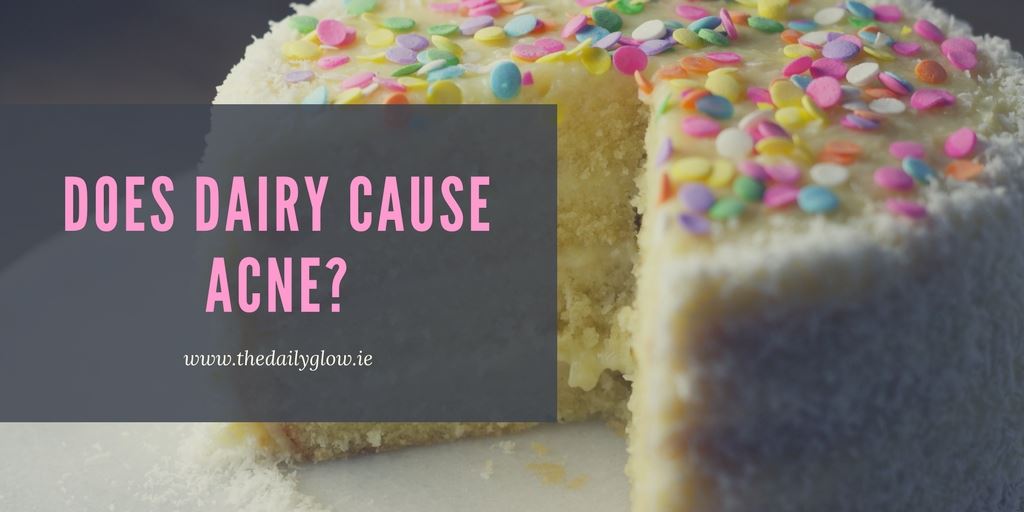
Does dairy cause acne?
Acne has many supposed causes, ranging from a genetic predisposition to gut health and skin hygiene – so it can be difficult to decide what to believe, and figure out what will work for you. Although there are many dermatologists that refute any relationship between diet and acne vulgaris, dairy comes up time again among patients and magazine articles as a possible trigger. I have found myself that there is no comparison between the clarity of my skin on a dairy-free* diet and how prone to breakouts it is when I’m having milk etc on a daily basis. My own recipe for clear skin includes a proper skincare routine, regular exercise, zinc and chlorophyll supplementation and avoiding dairy – and most of the time it works pretty well.
*When I say dairy-free, I do still eat butter, as this doesn’t seem to have any effect either way. This is supported by research to date that links low-fat milk consumption to acne more strongly than regular full-fat milk – which would suggest that the fat itself is not the issue. (Fat is a friend, not a foe, remember?)

One of the most common (and confidence-knocking) complaints my patients have is acne – honestly, I don’t know that I ever see people get so down about something that is not remotely life threatening, and doesn’t physically stop them from functioning. The emotional and social impact is huge, and I have seen personalities do a complete 180 after their skin cleared up, changing from a shy, socially awkward wallflower that won’t make eye-contact, to a bubbly, friendly individual that walks into the clinic with a smile on their face.

Acne is physically caused by sebum and dead skin cells clogging a pore (blackheads or comeodomes), which then become inflamed, and finally, infected. Here, and here are some ways you can treat this topically. The consistency and amount of sebum produced is very important – although excess sebum is blamed as one of the root causes of acne, you want some sebum that flows easily through the pore without getting clogged, as this is also what keeps your skin moisturised and supple. Your hormones and diet can impact this very important consistency – so this is how, I would imagine, dairy can have an impact. I generally prescribe different skincare products for acne patients (Obagi is my current go-to), as there can most definitely be local causes, but in my opinion, diet most definitely plays a part.
A study in published in 2005 showed intake of dairy in adolescence was associated with a history of teenage acne. This may be caused by the presence of hormones and bioactive agents in milk (cows are technically breast-feeding, so hormones will be present, no matter how “organic” your milk is). Many of these substances are precursors to DHT (dihydrotestosterone), the main stimulator of acne. IGF-1 (insulin-like growth factor one), which is also implicated in the malfunction of sebum and hair follicles and pores, and the IGF-1 in cows is similar to that in humans, and therefore may promote acne by its effect on the hormones involved in sebum production etc.

The quality of the studies linking dairy and acne currently is not of the highest standard, and further research is definitely needed in this area – but coupled with my own experience, and other anecdotal stories, I think dairy is a likely cause of acne in many cases. And if you’re having trouble with breakouts and suffering from acne, it’s undoubtedly worth a try (banging your head off a wall, not so much). Have you ever tried cutting out dairy or any other food for the sake of your skin? I’d love to hear what has worked for you.

